Aluminum Dutch ovens are lighter and heat up quickly, while cast iron Dutch ovens are heavy and distribute heat evenly. Are you in a dilemma between choosing an aluminum Dutch oven or a cast iron one?
Well, both options have unique features and benefits that make them suitable for different cooking needs. We will explore the differences between aluminum Dutch ovens and cast iron ones, helping you make an educated decision based on your preferences. Whether you prioritize lightweight and fast heating or heavy-duty durability and even heat distribution, this guide will provide you with the information you need to choose the right Dutch oven for your kitchen.
So, let’s dive in and compare these two popular choices.
The Great Cookware Debate: Aluminum Dutch Oven Vs Cast Iron
The Great Cookware Debate: Aluminum Dutch Oven Vs Cast Iron
Aluminum Dutch ovens and cast iron cookware are both popular choices among cooks and chefs, each with its own unique properties and benefits.
Aluminum is known for its lightweight nature, making it easy to handle and maneuver in the kitchen. It heats up quickly and evenly, allowing for efficient cooking.
On the other hand, cast iron has a reputation for its excellent heat retention and distribution. It is revered for its durability and ability to withstand high temperatures, making it ideal for slow cooking and baking.
Identifying user needs and preferences is essential when choosing between the two materials. Some may prioritize lightweight and easy handling, while others may value heat retention and durability.
Furthermore, both materials have cultural and historical significance. Cast iron has a rich heritage, dating back centuries, and its use is steeped in tradition. Aluminum, on the other hand, emerged in the industrial era and gained popularity for its modern appeal.
Ultimately, the choice between aluminum Dutch ovens and cast iron cookware depends on personal preferences, cooking style, and cultural factors. It’s important to consider the specific needs of the user and the desired cooking experience when making a decision.
Understanding Aluminum Dutch Ovens
Aluminum Dutch ovens and cast iron Dutch ovens are both popular choices for cooking, but they have distinct differences that make each suitable for different situations.
An aluminum Dutch oven is typically made from anodized aluminum, which provides excellent heat conductivity and distribution. This means that it heats up quickly and evenly, allowing for precise temperature control. On the other hand, a cast iron Dutch oven is made from cast iron, which retains heat well and provides even heat distribution.
Aluminum Dutch ovens are generally lighter in weight compared to cast iron Dutch ovens. This makes them easier to handle and maneuver, especially for individuals who may have difficulty lifting heavier cookware. Cast iron Dutch ovens, although heavier, can offer better heat retention due to their density.
Aluminum Dutch ovens are known for being easy to clean and require minimal maintenance. They are also less prone to rusting compared to cast iron. On the other hand, cast iron Dutch ovens require specific care to prevent rust and seasoning loss. However, with proper care, cast iron Dutch ovens can last for generations, making them extremely durable.
In terms of price, aluminum Dutch ovens tend to be more affordable than cast iron Dutch ovens. This makes them a popular choice for those on a budget or beginners who want to try Dutch oven cooking without a significant investment. Cast iron Dutch ovens, while more expensive upfront, offer long-term value due to their durability and longevity.
Delving Into Cast Iron Cookware
Cast iron and aluminum are both popular choices when it comes to Dutch ovens, but they differ in several key aspects. Composition and heat retention qualities: Cast iron, known for its excellent heat retention, allows for even cooking and heat distribution, while aluminum heats up quickly but may have less even heat distribution. Weight and its impact on usage: Cast iron is significantly heavier than aluminum, making it more durable and suitable for outdoor cooking, but potentially less convenient for mobility. Seasoning process and rust prevention: Cast iron requires seasoning to create a natural non-stick surface and prevent rust, whereas aluminum doesn’t require such maintenance. Longevity and heirloom quality: With proper care, cast iron can last for generations and develop a seasoned coating that enhances the flavor of dishes, while aluminum may not have the same longevity. Cost comparison with aluminum: Cast iron Dutch ovens tend to be more expensive than their aluminum counterparts, as cast iron is considered a higher-end cookware material.
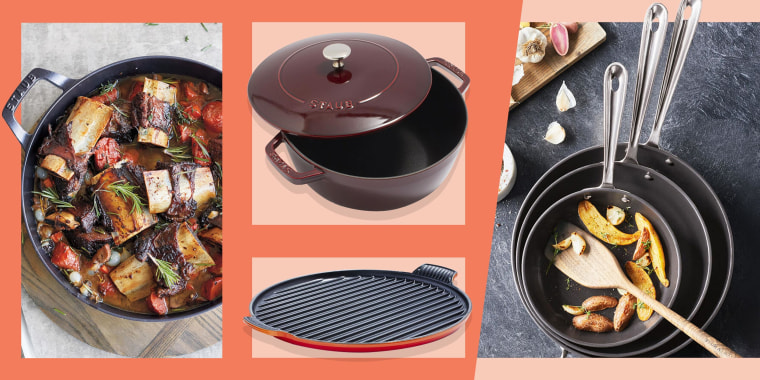
Credit: www.nbcnews.com
Key Differences Unveiled
Heat conduction and distribution: Both aluminum Dutch ovens and cast iron pots have different heat conduction properties. Aluminum is known for its excellent heat conductivity, ensuring that heat is distributed evenly throughout the pot. It heats up quickly and retains heat efficiently. On the other hand, cast iron takes longer to heat up but retains heat for a longer period of time, making it suitable for slow and steady cooking.
Cooking performance and flavor influences: Aluminum Dutch ovens are lightweight and responsive, offering quick and precise cooking control. They are ideal for dishes that require fast temperature changes. Cast iron, on the other hand, provides excellent heat retention and even heat distribution, resulting in flavorful and well-cooked meals. The material sears meat perfectly, creating a lovely crust.
Versatility in the kitchen: Aluminum Dutch ovens are often non-stick, making them easy to clean and perfect for dishes that require regular stirring. They are also highly resistant to rust, making them suitable for acidic ingredients. Cast iron, on the other hand, is extremely versatile and can be used on all types of stovetops and even in ovens or over campfires. They are perfect for slow cooking, braising, baking, and even frying.
Cleaning routine and ease of care: Aluminum Dutch ovens are dishwasher safe and can be easily cleaned with mild detergent. They require minimal maintenance and are quick to dry. Cast iron requires more attention when it comes to cleaning. It should be hand washed, avoiding the use of soap, and dried immediately to prevent rust. It also needs to be seasoned regularly to maintain its non-stick surface.
Health And Safety Aspects
In terms of health and safety aspects, it is important to consider the reaction of aluminum with acidic foods. Aluminum can react with acidic ingredients, leading to the release of small amounts of the metal into the food. Over time, this can result in accumulation of aluminum in the body, which has been associated with certain health issues.
On the other hand, cast iron can actually provide a health benefit. Cooking with cast iron cookware can increase the iron content of the food, helping to address iron deficiencies. This is particularly beneficial for individuals who are at risk of iron deficiency, such as pregnant women and those with anemia.
When choosing between aluminum and cast iron cookware, it is recommended to look for options that have non-toxic coatings. These coatings act as a barrier between the food and the metal, preventing any potential reactions. Additionally, non-toxic coatings can also protect the flavor and quality of the food.
| Pros | Cons |
|---|---|
| Aluminum | May react with acidic foods |
| Cast Iron | Can increase iron content of food |
| Non-toxic Coatings | Protect food flavor and quality |
Aluminum Dutch Oven Vs Cast Iron In Recipes
Aluminum Dutch Oven Vs Cast Iron in Recipes
Aluminum Dutch ovens and cast iron pots have different properties that make them suitable for various recipes. When it comes to slow cooking and braising, both types of cookware can deliver excellent results. Aluminum Dutch ovens are known for their quick and even heat distribution, which is ideal for gently simmering stews and braising meats. On the other hand, cast iron is well-regarded for its superior heat retention, making it perfect for slow-cooked dishes that require longer cooking times.
When it comes to baking and frying, cast iron steals the show. Its ability to hold and distribute heat evenly allows for consistent and crispy results. Cast iron is often hailed as the go-to choice for deep-frying due to its excellent heat conductivity and durability. While aluminum Dutch ovens can still do a good job in these cooking methods, their lightweight nature may not provide the same level of heat retention as cast iron.
If you enjoy cooking outdoors, both aluminum Dutch ovens and cast iron pots can be great options. Aluminum Dutch ovens are lighter and more portable, making them easier to transport for camping trips and outdoor gatherings. Cast iron, although heavier, excels in outdoor cooking thanks to its ability to handle high heat and endure direct flames. It’s worth considering the specific needs of your outdoor cooking adventures to determine which type of cookware suits you best.
Navigating The Market
Aluminum Dutch Oven Vs Cast Iron
Navigating the Market
Popular brands and their offerings:
| Brand | Material | Features |
|---|---|---|
| Lodge | Cast Iron | Even heat distribution, Natural non-stick surface |
| Cuisinart | Aluminum | Lightweight, Quick heating, Easy to clean |
| Le Creuset | Cast Iron | Durable, Retains heat well |
Warranty and customer service considerations:
When investing in a Dutch oven, it’s important to consider the warranty and customer service provided by the brand. Look for brands that offer a long warranty period and have a good reputation for their customer service. This ensures that you will receive support if any issues arise with your product.
User reviews and testimonials:
Reading user reviews and testimonials can provide valuable insights into the performance and durability of different Dutch oven brands. Look for consistent positive feedback regarding heat distribution, non-stick properties, and overall longevity. User experiences can help you make an informed decision when choosing between an aluminum Dutch oven and a cast iron one.
Maximizing Cookware Lifespan
Proper storage techniques play a crucial role in maximizing the lifespan of your cookware, whether it’s an aluminum Dutch oven or a cast iron one. Storing your Dutch oven properly starts with cleaning and drying it thoroughly before putting it away. Make sure to remove any residual food or grease, as they can cause corrosion or attract pests.
Seasonal care is essential to keep your cookware in optimal condition. For aluminum Dutch ovens, avoid using harsh cleaning agents, as they can damage the non-stick coating. Instead, opt for gentle cleansers or natural cleaning solutions. Additionally, keep them away from direct sunlight or extreme temperatures, as they can lead to warping or discoloration. Cast iron cookware requires regular seasoning to maintain its non-stick surface. It’s also crucial to dry them properly to prevent rust formation.
When it comes to common pitfalls, using metal utensils on non-stick surfaces, using abrasive cleaning materials, or placing hot cookware directly on countertops are avoidable mistakes that can significantly reduce the lifespan of your Dutch oven. By following proper storage techniques and seasonal care tips, you can ensure that your cookware lasts for years to come.
Personalizing Your Cookware Choice
The choice between an aluminum Dutch oven and a cast iron one ultimately comes down to personal preference and cooking style. Both materials have their own unique benefits and considerations.
When it comes to matching cookware to your cooking style, it’s important to consider factors such as heat distribution and retention. Cast iron excels at retaining heat, making it ideal for slow cooking or dishes that require steady, even heat. On the other hand, aluminum heats up quickly and distributes heat evenly, which is great for recipes that require precise temperature control or for those who prefer to cook with less heat.
Aesthetic and design factors also play a role in the decision-making process. Cast iron Dutch ovens are known for their classic and timeless design, while aluminum ones often have a sleek and modern look. Consider which style aligns with your kitchen decor and personal taste.
Additionally, some individuals may value the resale value and collector interest of their cookware. Cast iron Dutch ovens have a long history and are often sought after by collectors, which can add value to your investment.
In summary, when choosing between an aluminum Dutch oven and a cast iron one, consider your cooking style, aesthetic preferences, and potential resale value. Both options offer their own advantages, so make sure to choose the one that best suits your needs and preferences.
Frequently Asked Questions For Aluminum Dutch Oven Vs Cast Iron
What Are The Advantages Of Using An Aluminum Dutch Oven?
Aluminum Dutch ovens offer a lightweight option, making them easier to handle. They heat up quickly and evenly, ensuring even cooking. Additionally, they are resistant to rust and corrosion, making them durable and long-lasting.
Are Cast Iron Dutch Ovens Better Than Aluminum Ones?
Cast iron Dutch ovens have their own advantages. They retain heat well, allowing for even cooking and simmering. They also add a unique flavor to the food. However, they are heavier and require more maintenance, such as seasoning and careful cleaning.
Can Aluminum Dutch Ovens Be Used On All Types Of Stovetops?
Yes, aluminum Dutch ovens are versatile and can be used on all types of stovetops, including gas, electric, induction, and even campfires. Their compatibility with various heat sources makes them a practical choice for cooking in different environments.
How Does The Price Of Aluminum Dutch Ovens Compare To Cast Iron Ones?
Generally, aluminum Dutch ovens are more affordable compared to cast iron ones. The cost difference is mainly due to the material used and the manufacturing process. However, price can also vary depending on the brand, size, and additional features of the Dutch oven.
Conclusion
Ultimately, the choice between an aluminum Dutch oven and a cast iron one depends on your specific needs and preferences. While aluminum ovens offer lighter weight and faster heat conduction, cast iron provides unparalleled heat retention and durability. Consider factors such as cooking style, heat distribution, and maintenance when making your decision.
Whichever you choose, proper care and seasoning will ensure a long lifespan for your chosen dutch oven.

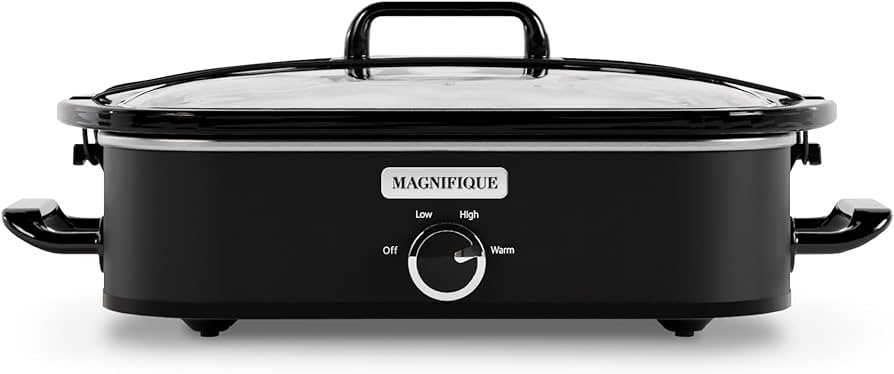
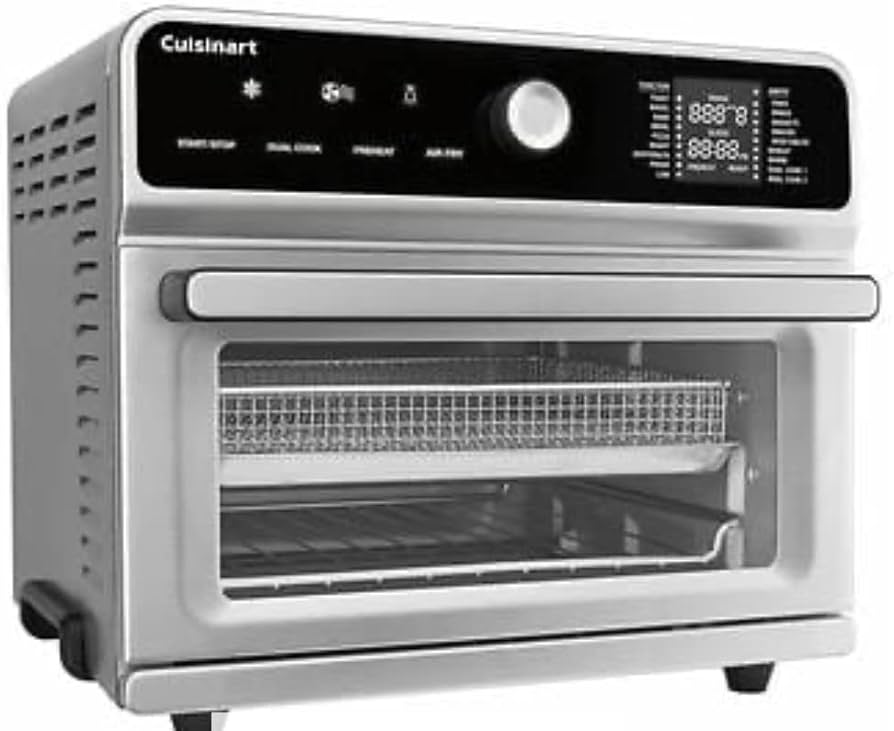
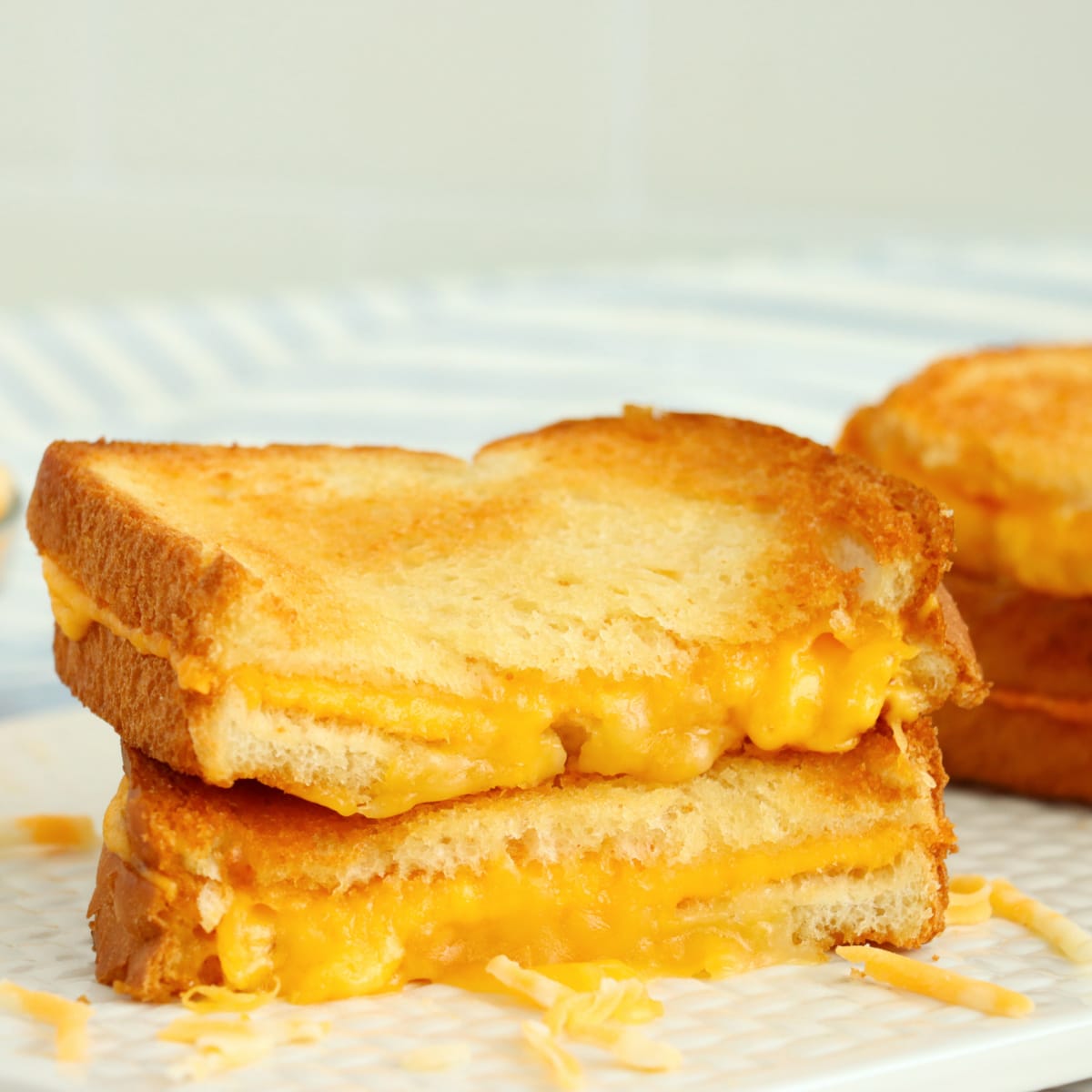
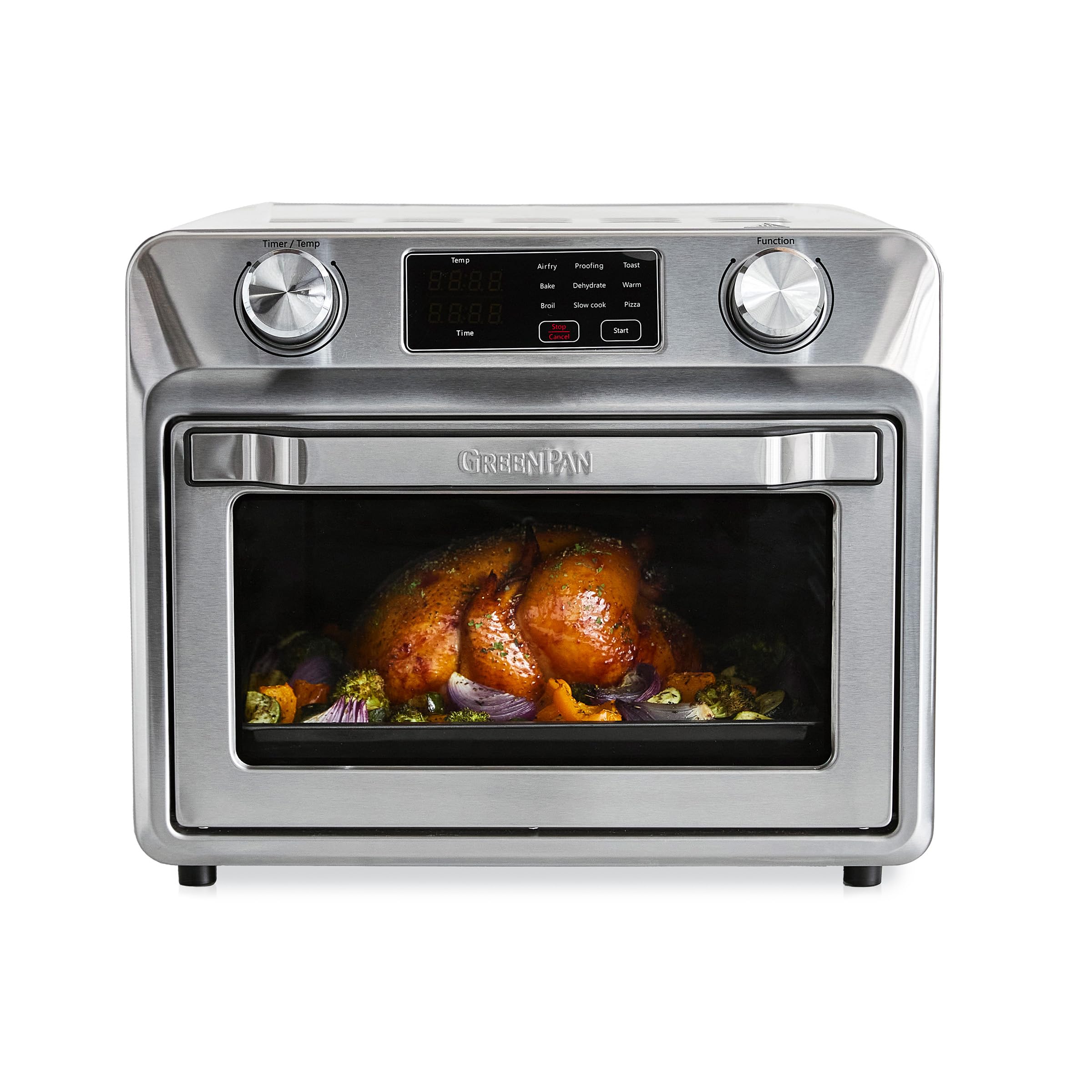
Leave a Reply